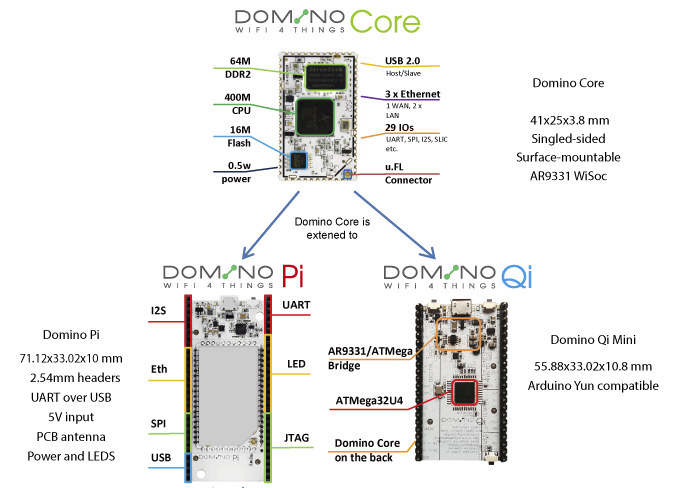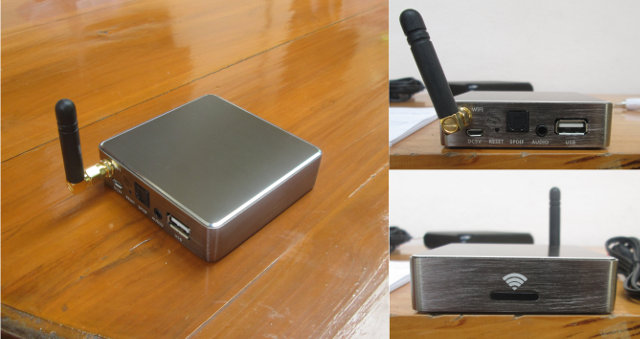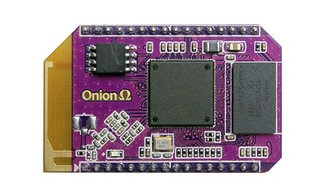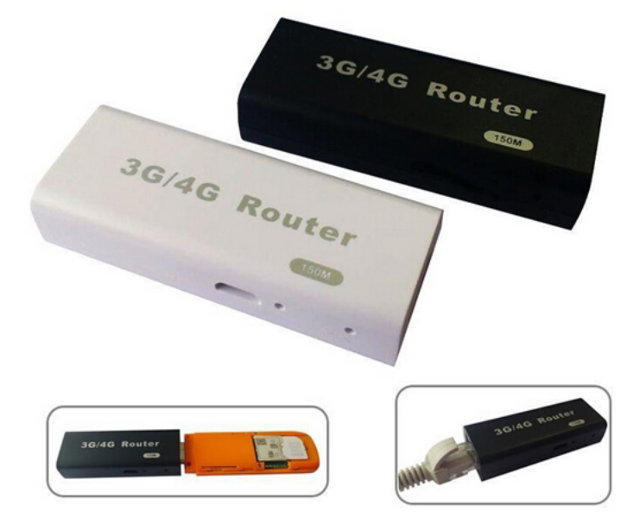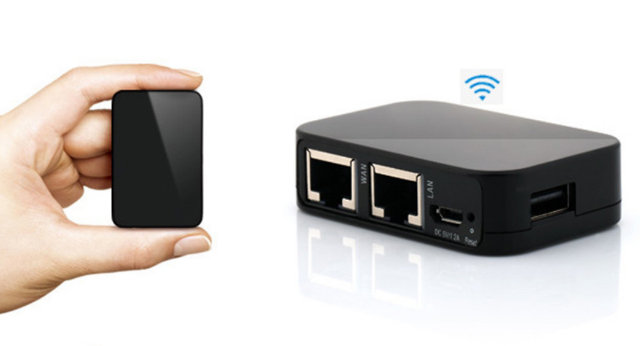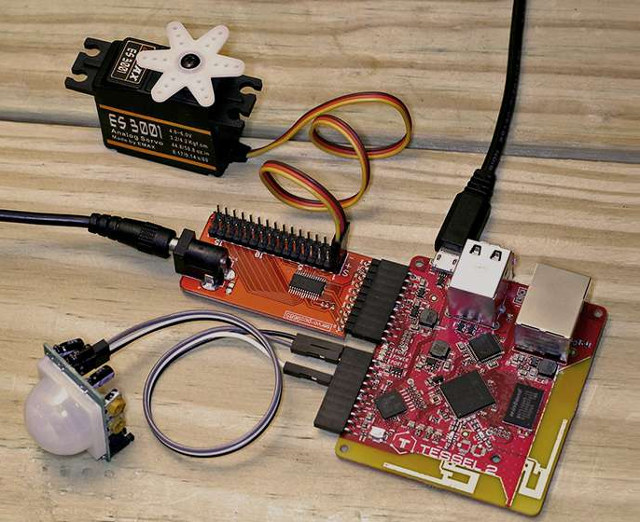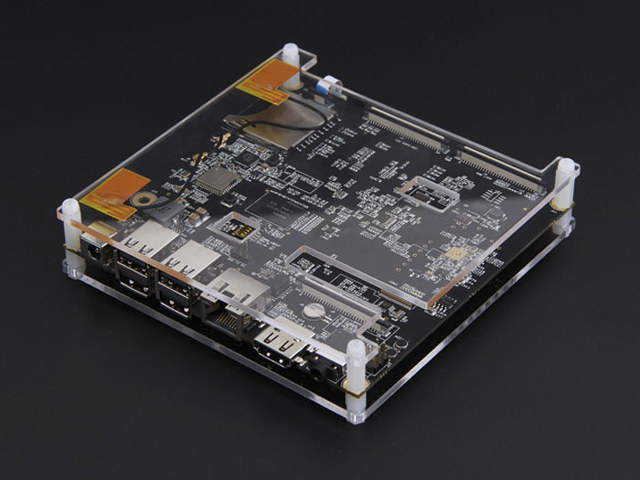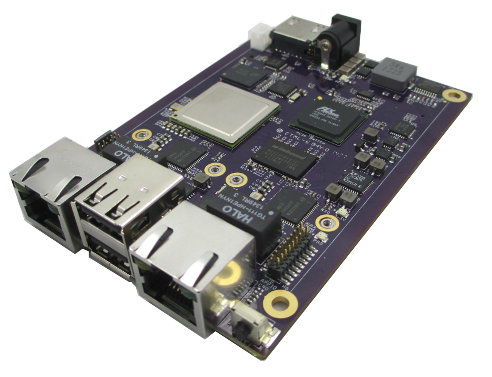The makers of GL.iNet OpenWRT compatible router have decided to build a module and two development boards based on Qualcomm Atheros AR9331 WiSoC. Domino.IO is composed of a Domino Core Wi-Fi module that can be used in your own project, but if also part of Domino Pi, a breadboard-friendly board featuring the module, and Domino Qi mini, a similar board with an Atmel ATMEga32U MCU making it compatible with Arduino Yun board. Domino Core specifications: SoC – Qualcomm Atheros AR9331 MIPS processor @ 400MHz with System Memory – 64MB DDR3 Storage – 16MB flash Connectivity – 802.11 b/g/n Wi-Fi with u.FL connector I/Os via half through holes – USB 2.0 host/slave, 3x Ethernet, 29 IOs including UART, SPI, I2S, SLIC, etc… Dimensions – 41 x 25 x 3.8 mm Domino Pi and Qi mini summarized specifications are shown in the table below. Domino Pi Domino Qi Mini Wi-Fi Module Domino […]
RaidSonic Releases Firmware and Source Code for Atheros AR9331 Wi-Fi Audio Streamers
RaidSonic is a German company releasing products such as media players and multimedia accessories under their ICY BOX brand. One of those products is ICY Box IB-MP401Air music streaming received based on Atheros AR9331, and that looks very similar to SoundMate M2 I reviewed last year. But if you look on their product page, you’ll find out a few download links: ICY BOX IB-MP401Air (multilang) – The Quick Start Guide and User’s manual in English and German IB-MP401Air (Source code) – a 648 MB rar file with source code for U-boot and OpenWRT IB-MP401Air (Firmware) – The firmware IB-MP401Air (Open Source Software) – Just the open source licenses So I’ve downloaded the source code file (IB-MP401Air_Sources_and%20License_Terms.rar) to have a look. It has two compressed files, one with the license, and IB-MP401Air_Sources.tar.gz with the source code.
|
1 2 3 4 5 6 7 |
tar xzvf IB-MP401Air_Sources.tar.gz cd dns320B_GPL20150212/ ls -l total 12 -rwxr--r-- 1 jaufranc jaufranc 1400 Apr 16 16:49 building-the-firmware.txt drwxr-xr-x 14 jaufranc jaufranc 4096 Feb 12 10:54 dns320B_GPL20150212 -rwxr--r-- 1 jaufranc jaufranc 925 Feb 12 08:25 making-u-boot.txt |
The file showing how to build the firmware (OpenWRT) explains you should not use […]
Onion Omega is an Atheros AR9331 Wi-Fi Module Supporting Various Docks and Add-on Boards (Crowdfunding)
There are so many inexpensive Wi-Fi modules running Linux that it would be easy to discard Onion Omega as yet another Wi-Fi module based on Atheros AR9331 WiSoC. However, the developers have tried to bring some added value by making programming easier for web developers, integrating it with a cloud platform (free for non-commercial use), and providing basicor Arduino dock, and add-on boards for Ethernet, OLED, Relay… to make building hardware projects easier too. Let’s go through the hardware first, starting with the module specifications: SoC – Atheros AR9331 400MHZ MIPS 24K System Memory – 64MB DDR2 400MHz Storage – 16MB Flash Connectivity – 10/100 Mbps Ethernet + 802.11b/g/n Wi-Fi up to 150Mbps with PCB antenna w/ uFL connector I/Os – 18 GPIOs USB – 1x USB 2.0 Power Supply – 3.3V; Typ. consumption: 0.6W Dimensions – 28.2mm x 52mm (1.1″ x 2.0″) Since this type of module is not […]
A5-V11 Mini Router Runs OpenWRT (Linux) For Just $8
In case you you still think OpenWRT capable NEXX WT1520 router is still too expensive at $15, what about an $8 OpenWRT router? That’s what LY mini wireless router costs including shipping, and it’s better known as A5-V11, the name of its PCB. It’s not exactly a 3G/4G router as the casing implied, but it does support external USB 3G/4G dongles like most other routers with USB on the market. A5-V11 specifications: SoC – Mediatek/Ralink) RT5350F MIPS processor @ 360MHz System Memory – 32MB RAM (W9825G6EH-75). Some people reported theirs only have 16MB RAM, so YMMV. Storage – 4MB NAND flash (Pm25LQ032) Connectivity – Wi-Fi 802.11b/g/n up to 150 Mbps; 1x 10/100M Ethernet USB – 1x USB 2.0 host port, 1x micro USB port for power Misc – Power LED, factory reset pinhole Power – 5V via micro USB port Dimensions – 6.1 x 2.3 x 1.4 cm Contrary to […]
$15 NEXX WT1520 Wi-Fi Router Supports OpenWRT
TP-Link WR703N is a popular low cost router well supported by OpenWRT that costs about $23 shipped. But there’s now a new cheaper router that’s been mentioned in comments on CNX Software a few times, with a different processor, but otherwise similar specs plus an extra Ethernet port. NEXX WT1520 is powered by Mediatek RT5350F, sells for $15 including shipping from sites like Banggood, Aliexpress and eBay, and can run OpenWRT, although it’s not officially supported yet. NEXX WT1520(F/H) specifications: SoC – Mediatek (previously Ralink) RT5350F MIPS processor @ 360MHz System Memory – 32MB RAM Storage – 4MB NAND flash Connectivity: Wi-Fi 802.11b/g/n up to 150 Mbps with built-in PIFA antenna 2x 10/100M Ethernet (LAN and WAN) USB – 1x USB 2.0 host port, 1x micro USB port for power Misc – Status LED, reset pinhole, power button Power – 5V via micro USB port Dimensions – 63 x 43 […]
$35 Tessel 2 IoT Board Features Atmel SAMD21 MCU and Mediatek MT7620n WiSoC
Tessel is a Wi-Fi IoT board based on NXP LPC1830 Cortex M3 MCU and Texas Instruments CC3000 modules, that’s designed to bring embedded development to web programmers with a system that can be programmed with JavaScript and Node.js. At the time of the crowdfunding campaign in 2013, the board was available with external modules (Relays, sensors, Bluetooth LE…) for $100 and up, but now Technical Machine, the company behind the project, has announced Tessel 2 combining Atmel SAMD21 Cortex M0+ to control I/O and Mediatek MT7260n for Wi-Fi connectivity, still programmable with JavaScript ot Node.js. Tessel 2 specifications: MCU – Atmel SAMD21G14A-MU Cortex M0+ MCU @ 48MHz with 16KB SRAM and 2KB Flash SoC – Mediatek MT7260n MIPS24KEc Wi-Fi SoC @ 580 MHz System Memory – 64MB DDR2 Storage – 32MB flash for firmware (OpenWRT) Connectivity – 10/100M Ethernet, and Wi-Fi 802.11 b/g/n with dual PCB antennas USB – 2x […]
Mixtile LOFT-Q Allwinner A31 Board with SATA Can Now be Purchased for $90
Mixtile LOFT-Q and LOFT Kit were unveiled nearly a year ago, the first being a development board based on Allwinner A31 processor with 2GB RAM, 16GB RAM, SATA connector, Gigabit Ethernet, etc.., while the second is a kit with an enclosure and power supply. The kit does not appear to be available yet, but the board has recently been listed on SeeedStudio for $90. Mixtile LOFT-Q specifications: SoC – Allwinner A31 quad core ARM Cortex-A7 processor with PowerVR SGX544 MP2 GPU System Memory – 2GB DDR3 Storage – 8GB eMMC, SATA III connector for 2.5″ drives, and SD card Slot Video Output – HDMI 1.4 up to 1080p60 Video Decoding – H.264 4Kx2K video decoding, multi-format FHD video decoding, including Mpeg1/2, Mpeg4 SP/ASP GMC, H.263, H.264,etc Audio I/O – HDMI, 1 S/PDIF, high definition microphone Camera I/F Integrated Parallel & MIPI I/F sensor Integrated powerful ISP, supporting Raw Data CMOS […]
Gateworks GW5520 Single Board Computer Features Dual Gigabit Ethernet Ports, Two mini PCIe Slots
If you need industrial grade ARM Linux boards with lots of Ethernet ports and several mini PCIe slots, you may want to check out Gateworks Ventana boards. The company has now released a smaller member of Ventana family with GW5520 SBC powered by Freescale i.MX6 dual, with two Gigabit Ethernet port, two mini PCIe slots, and support for PoE. Gateworks Ventana GW5520 SBC specifications: SoC- Freescale i.MX6 Dual Cortex A9 processor @ 800MHz with Vivante Vivante GC2000 / GC355 / GC320 GPUs. Option: i.MX6 Quad System Memory – 512 MB DDR3-800 SDRAM (Up to 2GB RAM as option) Storage – 256 MB Flash (Up to 2GB as option), serial configuration EEPROM Video and Audio Output – HDMI 1.4 Connectivity – 2x Gigabit Ethernet ports. USB – 2x USB 2.0 host ports Expansion 2x Mini-PCIe sockets Optional mini-PCIe socket to supports a mSATA disk drive (i.MX6 Quad only) I/Os Serial – […]


